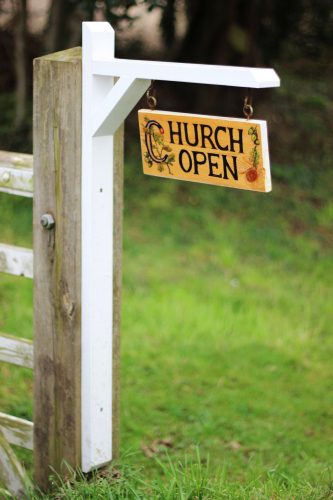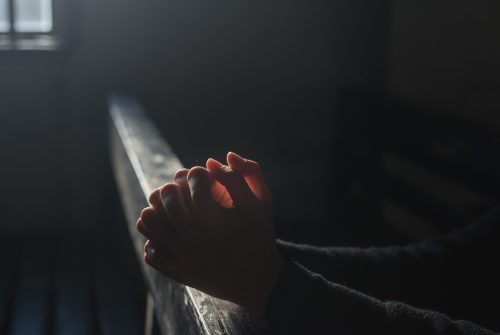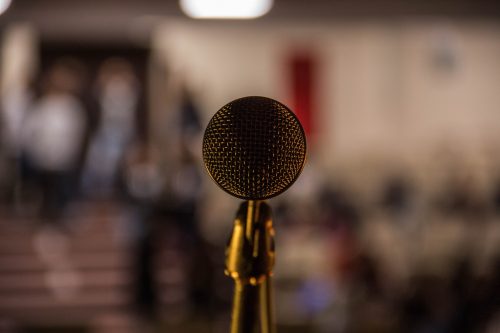Last year, I wrote a blog addressing some of the mistakes I’ve made and traps I’ve fallen into in my years of pastoring. The blog was written in response to the scandals at Hillsong Church, and the documentary The Kingdom screened on SBS.
Two pitfalls I succumbed to as a younger pastor were the frenetic pace of the contemporary church and unholy expectations. I have tackled these two irritants in my life and our church, and we are all happier and much more relaxed.
The Relentless Pursuit of More
The contemporary church has bought into a secular myth that constantly desires more. I’ve already seen it on social media at the beginning of this new year: “So much more in ’24” was the clichéd rhyming statement posted by a pastor who took most of last year off because he was burned out.
We do ourselves and the people we lead a disservice if we are constantly dangling a carrot of grander visions and dreams and striving for more because it ultimately leads to disappointment. It also buys into the original temptation in Eden. The first humans had everything. The snake came along and whispered, “There’s more. You’re missing out. What you have is not enough.” Adam and Eve embraced it, and we’re still paying the price.
A Better Way
I’m not saying that churches (or businesses) shouldn’t seek growth, but we need to be on our guard for the relentless pursuit of more. Not all growth is healthy. Cancer is growth, and we deal with it harshly.
There’s a better way which says, “What I have is more than enough!” It’s called contentment. Jesus said, “You’re blessed when you’re content with just who you are — no more, no less. That’s the moment you find yourselves proud owners of everything that can’t be bought.” I invite you to reflect on these Scriptures: Philippians 4:11-13, Hebrews 13:5, 1 Tim 6:6-10.
The Westminster Shorter Catechism of 1647 speaks of humanity’s primary goal as glorifying God and enjoying him forever. At the start of this new year, I encourage you to ponder questions like when is enough enough? And, what gives me the greatest contentment in life?
Set the Bar Lower
Practising contentment helps avoid disappointment. Another way is to have low expectations. There’s a message you won’t hear in most of today’s overactive churches, yet that’s a strong message in scripture. Consider the chapter on faith, Hebrews 11, in which the author writes about extraordinary men and women of faith who all died without receiving the things promised (13). Let that sink in.
Then, the author focuses on people called “the others.” These faith-filled people experienced great suffering that didn’t end until they passed from this life to the next—the world was not worthy of them. These were all commended for their faith, yet none received what had been promised.
They were still living by faith when they died.
They were all commended for their faith.
They hadn’t received the things promised.
They only saw them and welcomed them from a distance.
They were full of faith and vision but were realistic in their expectations. When we’re unrealistic, we get disappointed, so why not lower the bar?
I know many wonderful faith-filled people who suffer in life and, short of a miracle, will continue to suffer till death. Such people should not be made to feel like second-class Christians because they haven’t received an answer to prayer.
A Happy Life
In his book, “The Paradox of Choice,” psychologist Barry Schwartz wrote, “The secret to happiness is low expectations.” Lowering your expectations increases both your resilience and your happiness almost every time.
- You’ll be frustrated when you have high expectations, and the outcome is worse.
- You’ll be grateful when you have low expectations, and the result is better.
Jim Stockdale was an American Vice Admiral captured and imprisoned during the Vietnam War. He was held and tortured for seven years in what became known as the Hanoi Hilton. Stockdale said the first people to die in captivity were the optimists, who kept thinking things would get better quickly and they’d be released. He said, “They died of a broken heart.” Instead, Stockdale argued, the key to survival was to combine realism and hope. Stockdale wrote, “This is a very important lesson. You must never confuse faith that you will prevail in the end—which you can never afford to lose—with the discipline to confront the most brutal facts of your current reality, whatever they might be.”
Confront the facts, but always keep hope. Set Low Expectations. Practice contentment. And you’ll avoid disappointment.











 “Skin for skin!” has satan replies. “A man will give all he has for his own life. But now stretch out your hand and strike his flesh and bones, and he will surely curse you to your face.” God agrees, take his health, but don’t kill him. Nice!
“Skin for skin!” has satan replies. “A man will give all he has for his own life. But now stretch out your hand and strike his flesh and bones, and he will surely curse you to your face.” God agrees, take his health, but don’t kill him. Nice!



